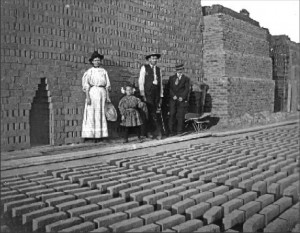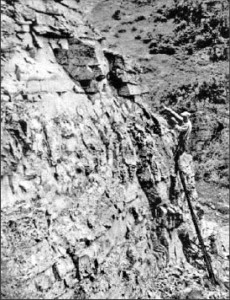(Tips for high-altitude gardeners)
by Suzanne Ward
We have moved into autumn and frost will be visiting our gardens.? It’s not yet time to put it all to rest – there’s still a little more work to be done before winter.
?When frost threatens, it is wise to be prepared.? The first frost is often followed by warmer weather.? Be ready to cover tender, immature crops such as tomatoes, eggplant, peppers, squash, cucumbers and okra with newspaper or blankets.?Covering them at night, combined with the warm autumn days, will allow the produce to come to full maturity.
?When a hard freeze is anticipated harvest your vegetables and bring them into shelter. Freeze, can or dry them as soon as possible.
?Onions should be pulled and hung to dry.? Green tomatoes can be brought inside to ripen, just don’t expect the quality of vine-ripened ones.? Pumpkins and squash will ripen in a warm place, then should be moved to a cooler spot.? Carrots and beets may be left in the ground, covered with mulch, until a hard freeze.? Then move them to a cool place to store.? Kale, parsnips, broccoli and collards actually like cold weather. Go ahead and leave them outside.? You can extend your season by working with nature and considering the needs of each individual plant.?
?After the “killing frost”, there is still work to be done.? Mulch the perennial herbs with straw, protecting the roots from freezing.? Clean the dead stems and vines and place them into your compost pile.? Cleaning the garden in the fall helps to avoid pests.
?Review and update your garden records.? Take note and analyze, while still fresh in your mind, what worked, where and when.? Make notes of what varieties you planted and the amount and success of each.? These records can be used to plan your next season’s garden.
?Collect all your garden tools, clean, oil them and store them for the winter.? Mend or replace tools which need repairing.? You will be happy in the busy spring that this is already done.
?Lay down a mulch of grasses, leaves or straw on your garden.?This helps replace nutrients lost during the growing season.?Bags of leaves left as trash in alleys can be collected and placed on the garden.? These efforts will help lead to rich, organic soil in the spring.
?Congratulations on your gardening successes this season.? Your hard work has been rewarded with beautiful produce from your own hands and your own soil.
There’s nothing more gratifying and freeing than producing your own food.
?
Woman With Flower
I wouldn’t coax the plant if I were you.
Such watchful nurturing will do it harm.
Let the soil rest from too much digging
And wait until it’s dry before you water it.
The leaf is inclined to find its own direction;
Give it a chance to seek the sunlight for itself.
Much growth is stunted by too much prodding,
Too eager tenderness.
The thing we love, we have to learn to leave alone.
?– Naomi Long Madgett
??
Good advice for gardening and good advice for living our lives as well.
?
Suzanne Ward no longer lives in Salida. She has moved to Poncha Springs to a four-acre property with an underground root cellar. She eagerly looks forward to gardening on a much grander scale next season.

